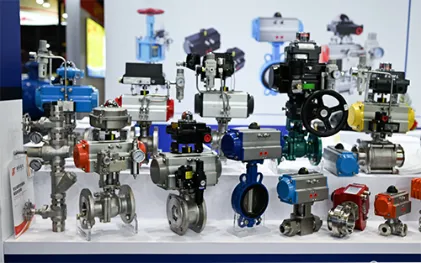Mobile:+86-311-808-126-83
Email:info@ydcastings.com
pre chamber diesel engine
Understanding Pre-Chamber Diesel Engines
Pre-chamber diesel engines have carved a notable niche in the realm of internal combustion engines, characterized by their unique combustion chamber design. These engines are widely recognized for their efficiency, longevity, and power output, making them a popular choice in various applications, particularly in commercial vehicles and heavy machinery. This article delves into the workings of pre-chamber diesel engines, their advantages, and their applications.
Anatomy of a Pre-Chamber Diesel Engine
At the heart of a pre-chamber diesel engine is its innovative combustion chamber design. Unlike conventional diesel engines, which utilize a single combustion chamber, pre-chamber engines feature an additional compartment — the pre-chamber — situated adjacent to the main combustion chamber. This pre-chamber is smaller and serves as an initial combustion zone, where fuel is injected and ignited before the combustion products are expelled into the primary combustion chamber.
When the air in the main combustion chamber is compressed by the piston, fuel is injected into the pre-chamber. The high temperatures generated from the compressing air ignite the fuel, causing it to burn rapidly. This combustion creates pressure that forces the gases through a small opening into the main chamber, resulting in a more uniform and complete combustion process. This design successfully minimizes the risk of knocking and aids in optimizing fuel consumption.
Advantages of Pre-Chamber Diesel Engines
1. Improved Efficiency One of the primary benefits of pre-chamber diesel engines is their heightened efficiency. The pre-combustion process allows for better fuel atomization and mixing with air. This leads to more complete combustion, which translates to improved thermal efficiency and lower fuel consumption.
2. Lower Emissions The design of pre-chamber engines contributes to reduced emissions. More complete combustion results in lower levels of unburnt hydrocarbons and particulate matter, which are notorious pollutants. As a result, these engines often meet stricter environmental regulations compared to conventional engines.
3. Reduced Noise Pre-chamber engines are often quieter than their conventional counterparts. The gradual release of combustion gases and the efficient combustion process contribute to lower noise levels, making them suitable for urban applications or environments where noise pollution is a concern.
4. Better Performance In terms of performance, pre-chamber diesel engines deliver higher torque at lower RPMs. This characteristic is particularly advantageous for heavy-duty vehicles and construction equipment that require substantial power for demanding tasks.
pre chamber diesel engine

5. Operational Flexibility Pre-chamber diesel engines can adapt to various fuel types, including biodiesel and other alternative fuels. This flexibility enhances their appeal in an era where sustainable and renewable energy sources are gaining traction.
Applications of Pre-Chamber Diesel Engines
Given their many advantages, pre-chamber diesel engines are highly sought after in numerous sectors. They are commonly found in
- Commercial Vehicles Trucks and buses rely on the robust performance of pre-chamber engines for long-haul transportation. The increased efficiency translates to lower operational costs over time.
- Construction Equipment Many types of construction machinery, including excavators and bulldozers, benefit from the high torque and durability offered by these engines, making them ideal for challenging environments.
- Marine Applications Pre-chamber diesel engines are also utilized in marine vessels, where efficiency and reliability are paramount for long-distance journeys over open water.
- Agricultural Machinery Tractors and other agricultural equipment leverage the power and efficiency of pre-chamber diesel engines to perform effectively in fields and farms.
Conclusion
The pre-chamber diesel engine represents a significant advancement in diesel technology, providing multiple benefits over traditional designs. With rising energy efficiency, reduced emissions, and versatile applications, these engines exemplify the evolution of diesel technology in meeting modern demands. As the world shifts toward greener and more sustainable energy sources, pre-chamber diesel engines will undoubtedly continue to play a vital role in various industries, proving that innovation in engineering can contribute to both performance and environmental responsibility.
-
Understanding Metal Casting TechniquesNewsApr.02,2025
-
Understanding Exhaust Manifolds for Enhanced Engine PerformanceNewsApr.02,2025
-
The World of Metal FabricationNewsApr.02,2025
-
Key Components for Pump and Turbo EfficiencyNewsApr.02,2025
-
Essential Tools for Automotive Maintenance and RepairNewsApr.02,2025
-
Durable Valve Components for Effective Water ManagementNewsApr.02,2025











